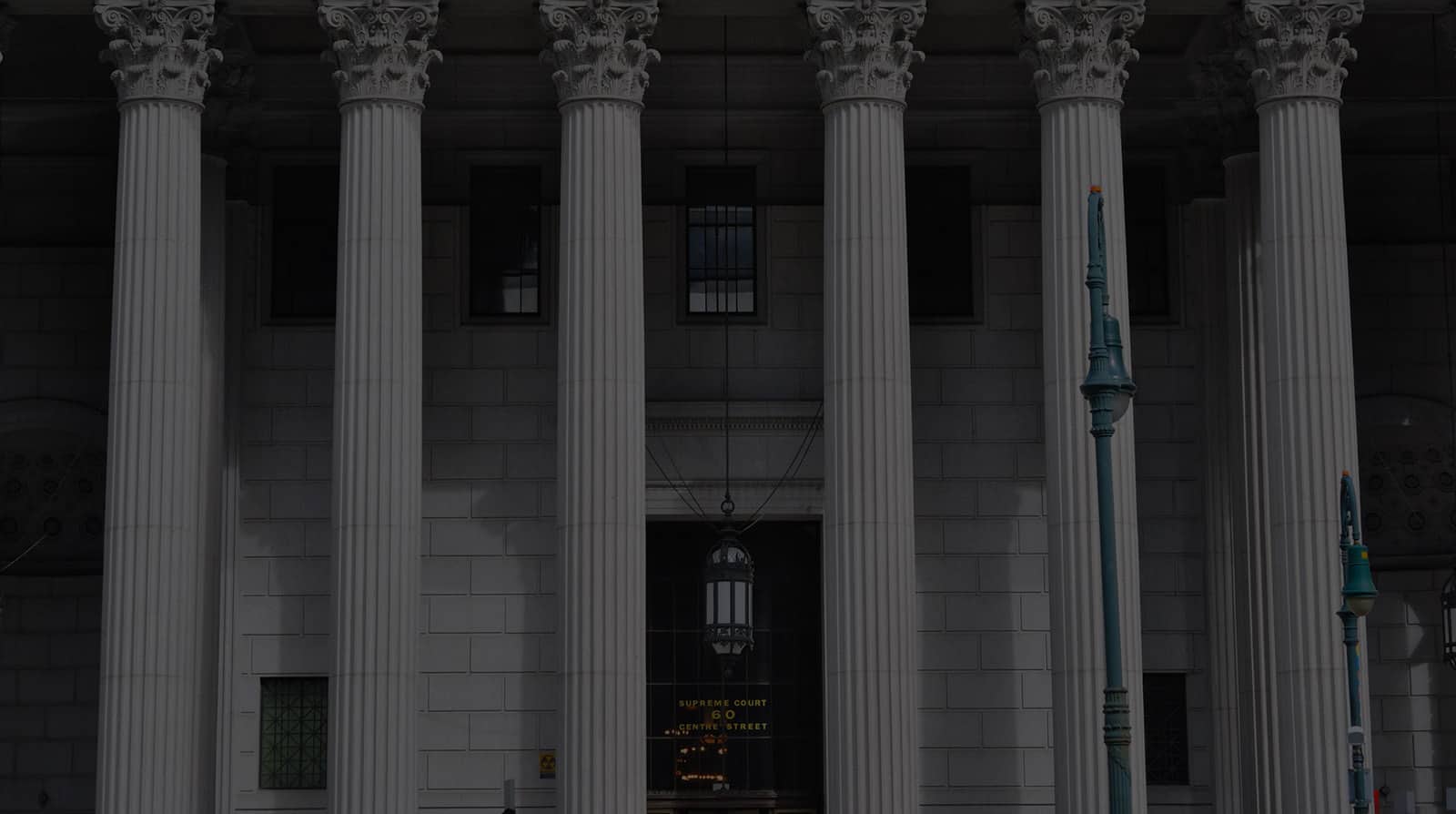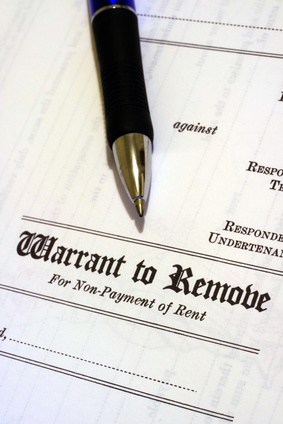Article 78 is the article of the Civil Practice Law and Rules (CPLR), which establishes the procedure for challenging the determinations of administrative agencies, public bodies or officers. These include every court, tribunal, board, corporation, officer, or other person, or aggregation of persons (CPLR 7802 [a]).
Properly stated, Article 78 provides the procedure in New York State for obtaining the relief previously obtained by writs of certiorari to review, mandamus or prohibition (CPLR 7801). Enacted in 1937, Article 78 is intended to supplant the three writs with a uniform procedure for obtaining the same relief. A proceeding brought under Article 78 is a special proceeding (CPLR 7804 [a]) and the parties to such a proceeding are referred to as “petitioners” and “respondents.”
What are writs of certiorari, mandamus and prohibition?
A writ is a written judicial order to perform a specified act. In New York State, the relief previously obtained by writs of certiorari to review, mandamus or prohibition, is now obtained by bringing a special proceeding under Article 78.
Certiorari is the writ by which the court reviews an action of an administrative agency, public body or officer for the purpose of establishing whether a determination made as a result of a hearing held, and at which evidence was taken, pursuant to direction by law is, on the entire record, supported by substantial evidence (CPLR 7803 [4]). The purpose of an Article 78 proceeding in the nature of certiorari is to seek judicial review.
Mandamus is the writ by which the court makes a finding as to whether an administrative agency, public body or officer failed to perform a duty enjoined upon it by law (CPLR 7803 [1]). The purpose of an Article 78 proceeding in the nature of mandamus is to compel the performance of a duty.
Prohibition is the writ by which the court makes a finding as to whether an administrative agency, public body or officer proceeded, is proceeding or is about to proceed without or in excess of jurisdiction (CPLR 7803 [2]). The purpose of an Article 78 proceeding in the nature of prohibition is to prohibit a specified action.
Is Article 78 relief limited to certiorari, mandamus or prohibition?
Article 78 proceedings are generally intended to be limited in scope to seeking the relief previously obtained by writs of certiorari to review, mandamus or prohibition. A provision exists in Article 78, however, which creates a hybrid form of relief that encompasses certiorari and mandamus, incorporating elements of both. In practice, many Article 78 proceedings seek the relief provided by this provision.
This hybrid form of relief is provided in CPLR 7803 (3), which authorizes the court to make a finding as to whether a determination of an administrative agency, public body or officer was made in violation of lawful procedure, was affected by an error of law or was arbitrary and capricious or an abuse of discretion, including abuse of discretion as to the measure or mode of penalty or discipline imposed.
Where are Article 78 proceedings brought?
A proceeding under Article 78 generally must be brought in New York State Supreme Court in any county within the judicial district where the respondent made the determination complained of or refused to perform the duty specifically enjoined upon him by law, or where the proceedings were brought or taken in the course of which the matter sought to be restrained originated, or where the material events otherwise took place, or where the principal office of the respondent is located (CPLR 7804 [b] and 506 [b]). There are certain exceptions to this general rule.
An Article 78 proceeding against a justice of the New York State Supreme Court or a judge of a county court must be commenced in the Appellate Division in the judicial department where the action, in the course of which the matter sought to be enforced or restrained originated, is triable, unless a term of the Appellate Division in that department is not in session, in which case the proceeding may be commenced in the Appellate Division in an adjoining judicial department (CPLR 506 [b] [1]).
Where an Article 78 proceeding is brought against the Regents of the State University of New York, the Commissioner of Education, the Commissioner of Taxation and Finance, the Tax Appeals Tribunal (with certain exceptions), the Public Service Commission, the Commissioner or the Department of Transportation (relating to certain matters), the Water Resources Board, or the Comptroller or the Department of Agriculture and Markets, it must be commenced in New York State Supreme Court in Albany County (CPLR 506 [b] [2]). In certain circumstances, however, Article 78 proceedings against the Commission of Education can be brought in New York State Supreme Court in the county of residence of the petitioner (CPLR 506 [b] [3]). Article 78 proceedings against the New York City Tax Appeals Tribunal must be commenced in the Appellate Division of the New York State Supreme Court, First Department (CPLR 506 [b] [4]).
How long do I have to bring an Article 78 proceeding?
An Article 78 proceeding against an administrative agency, public body or officer must be commenced within four months after the determination to be reviewed becomes final and binding upon the petitioner, or after the respondent’s refusal, upon the demand of the petitioner, to perform its duty; or with leave of the court where the petitioner, at the time such determination became final and binding upon him or at the time of such refusal, was under a disability because of infancy or insanity, within two years after such time (CPLR 217 [1]).
What types of judgments are awarded under Article 78?
In an Article 78 proceeding, the court can render a judgment granting the petitioner the relief to which he is entitled, or the court may dismiss the proceeding either on the merits or with leave to renew. If the proceeding was brought to review a determination, the judgment may annul or confirm the determination in whole or in part, or modify it, and may direct or prohibit specified action by the respondent (CPLR 7806).
Are monetary damages awarded in Article 78 proceedings?
Monetary damages, such as restitution, are obtainable in Article 78 proceedings. Any restitution or damages granted to the petitioner, however, must be incidental to the primary relief sought by the petitioner, and must be such as he might otherwise recover on the same set of facts in a separate action or proceeding suable in New York State Supreme Court against the same administrative agency, public body or officer in its or his official capacity (CPLR 7806).
Can enforcement of the determination under review be stayed?
On the motion of any party or on its own initiative, the court can stay further proceedings, or the enforcement of any determination under review, upon terms including notice, security and payment of costs. The enforcement of an order or judgment granted by the Appellate Division, however, may be stayed only by order of the Appellate Division or the New York State Court of Appeals. Unless otherwise ordered, security given on a stay is effective in favor of a person subsequently joined as a party to the Article 78 proceeding (CPLR 7805).
Selected Examples of Article 78 Proceedings
Matter of Tacos Ricos Corp. v New York State Liquor Authority, 58 AD3d 482 (1st Dept 2009). The petitioner, a restaurant, brought an Article 78 proceeding against the respondent, the New York State Liquor Authority, seeking review of the respondent’s determination to cancel the petitioner’s liquor license, to cause the petitioner to forfeit its bond, to require the petitioner to pay a civil penalty, and to deny the petitioner’s application for renewal of its liquor license. The respondent’s determination held that the petitioner’s establishment was in violation of law because the petitioner had allowed its premises to become disorderly by virtue of having imported women to dance with customers and to serve as waitresses. The respondent was unable, however, to adduce any evidence as to how the petitioner’s act of importing women to dance with its customers or serve as waitresses constituted allowing the premises to become disorderly within the meaning of the law. The Court held in favor of the petitioner, annulled the respondent’s determination, remanded the matter to the respondent and ordered the respondent to take certain action.
Matter of 25-24 Café Concerto Ltd. v New York State Liquor Authority, 2009 NY Slip Op 05410 (2d Dept 2009). The petitioner, a nightclub, brought an Article 78 proceeding against the respondent, the New York State Liquor Authority, challenging a determination of the respondent, which held that the petitioner violated certain provisions of law by serving alcoholic beverages to minors, and imposed civil penalties upon the petitioner. After an incident in which police responded to a complaint that the petitioner was serving alcohol to underage persons and issued summonses to two persons charging them with possession and consumption of alcohol by a minor, and based solely on the summonses issued by police to the alleged underage drinkers, the respondent brought charges against the petitioner for various violations of law and, as a result of an administrative hearing held in the matter, imposed civil penalties on the petitioner. The respondent, however, could not prove that the alleged underage drinkers were actually underage. Nor was there any proof that the beverages those persons possessed contained alcohol, or that the beverages were served to those persons by the petitioner. The Court, finding the summonses issued by the police to be insufficient as proof of any violations by the petitioner, held in favor of the petitioner and annulled the respondent’s determination.
Matter of Health Insurance Plan of Greater New York v Board of Assessors of Town of Babylon, 44 AD3d 1044 (2d Dept 2007). The petitioner, a health maintenance organization, brought an Article 78 proceeding against the respondent, the Sole Assessor of the Town of Babylon, challenging a determination of the respondent denying the petitioner’s application for exemption from real property taxes. As a health maintenance organization, the petitioner is exempt under the law from real property taxes and previously had always been granted an exemption by the respondent. The respondent was unable to demonstrate any rational reason for having withdrawn the petitioner’s tax exemption and failed to meet its burden of proving that the denial of the petitioner’s application was warranted. The Court found the actions of the respondent to be arbitrary and capricious and held in favor of the petitioner, annulling the respondent’s determination and ordering the reinstatement of the petitioner’s tax exempt status.
Matter of Vecce v Town of Babylon, 32 AD3d 1038 (2d Dept 2006). The petitioner, a property owner, brought an Article 78 proceeding against the respondent, the Town of Babylon, challenging a determination of the respondent’s zoning board denying the petitioner’s application for renewal of a previously approved building permit that had expired and for a zoning variance related to construction of a garage on his property. The petitioner had constructed a garage on his property pursuant to a building permit he was granted, which had expired. He then sought its renewal together with a variance for a rear yard setback of only a fraction of a foot, which was not substantial and had no adverse impact on the physical or environmental conditions of the neighborhood. The respondent denied the application and refused to issue the petitioner a certificate of occupancy for the garage. The Court held in favor of the petitioner, finding that the petitioner was entitled to a certificate of occupancy, remanded the matter to the respondent and ordered the respondent to take certain action.
Matter of Colaiacovo v Dormer, Sup Ct, Suffolk County, Oct. 30, 2008, Weber, J., index No. 20230/08. The petitioner, a Suffolk County resident, brought an Article 78 proceeding against the respondent, the Suffolk County Police Commissioner, seeking review of the respondent’s determination to cancel the petitioner’s pistol license. The petitioner held a valid pistol license to own and possess handguns within his home. The petitioner secured his handguns in a safe within his home that the petitioner’s wife was able to access. The petitioner’s wife, suddenly and without warning, retrieved one of the petitioner’s handguns from the safe, loaded it and used it to commit suicide. The respondent then canceled the petitioner’s pistol license although the petitioner was not at fault in any way. The Court held in favor of the petitioner, finding that the petitioner has a fundamental right to keep and bear arms, remanded the matter to the respondent and ordered the respondent to take certain action.
How do I know if an Article 78 proceeding is appropriate for me?
To be properly situated to bring an Article 78 proceeding, generally, you must be the subject of an adverse final determination of an administrative agency, public body or officer. You must have exhausted all other remedies, such as administrative appeals, and the Article 78 proceeding must be timely commenced. Only an attorney with expertise in Article 78 proceedings can advise you with certainty as to whether you have standing to bring a special proceeding under Article 78.
Since the statute of limitations for commencing an Article 78 proceeding is short, it is imperative that you consult with an attorney specializing in this area of practice as soon as possible. Failure to act within the time limits imposed by law may result in the forfeiture of your rights in the matter.
Do I need a lawyer to bring an Article 78 proceeding?
Because of the complexities of Article 78, it is highly advisable to retain a NY Attorney who specializes in such proceedings. While there are some types of legal matters in which it is not terribly ill-advised to represent oneself – such as in a small claims action, where there is not much at stake and where the court has created a framework and a forum for litigants to represent themselves – in most cases there is simply no substitute for professional counsel. Attempting to represent oneself in an Article 78 proceeding could lead to the loss of the case and an irreversible forfeiture of rights. For these reasons, you should always consult with, and be represented by, an attorney if you intend to bring an Article 78 proceeding.






Can an Article 78 proceeding be brought against the New York City Comptroller’s Office after denial of a vehicle damage claim.?
Can an Article 78 be filed against a Municipality that forced me to either retire or come back and decrease my salary substantially when I was performing 2 jobs for about 9 years? I was never counseled for not performing my 2 job duties. I was represented by a union that told me that if I go back to this agency they will not be able to help me again if my employer kept close watch on me and made it difficult.
Can A Article 78 Be Filed Against HPD Section 8 that Is Terminating Me For Leaving The Premises Without Permission And Going Over The Number of days for having a voucher?
I’m an investigator for a firm. On occasion, we’re denied police FOIL requests for documents. The municipality often cites some laws prohibiting such. But I’m told by other lawyers that an Article 78 almost always get them their needed docs.
1. Can I proceed with a 78 myself?
2. Is there a generic 78 format I may use for denied FOILs?
Can a article 78 be filed to reinstate section 8 which was closed due to higher income. I was told during this time by section 8 that when my income drops below the needed amount can I reapply by filing article 78.
Can an Article 78 proceeding be brought up against the Department of Motor Vehicles concerning a decision of putting a hold on my license when I’m a Florida resident?
can an Article 78 proceeding be brought up against the NYC Department of Health for denying an reopening of a default case?
i can bring an article against new york liquor authority for 3 denials for the wrong reasons and that is not the law near a shelters